(1).jpg)
THE MIDDAY NAP REDISCOVERED
Although modern life conditions are not very conducive, it is said that setting aside even a small amount of time for a nap in the middle of the day is highly beneficial for health and work performance.
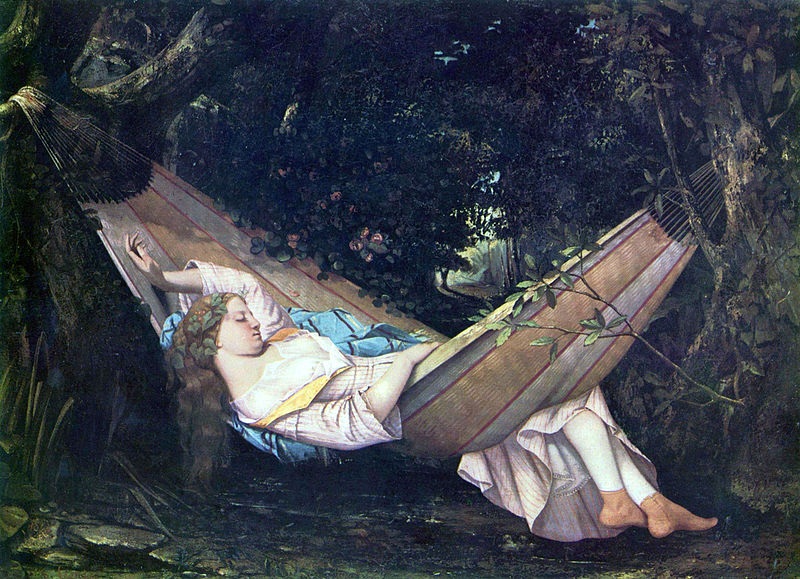
The World Belongs to the Early Risers
The midday nap, known in the Islamic world as qaylulah, was once an indispensable part of our lives. In the past, life began before sunrise; everyone rushed to their work, shop, school, or field. In the evening, they would return home, perform the night prayer (Isha), and go to bed. Electricity, television, and the internet were, of course, unknown. Since non-Muslims were not obligated to pray, those who went to bed before Isha were rebuked with the phrase: "The sun has set, the infidel has gone to bed." Additionally, devout individuals needed some daytime sleep because they woke up at night to perform Tahajjud, a late-night prayer. The Prophet Muhammad (peace be upon him) himself took a midday nap and advised believers not to neglect it. He said: "Sleeping at the beginning of the day reduces wisdom; sleeping in the middle of the day is from the good habits of prophets and the friends of Allah; sleeping at the end of the day is laziness." There were many who spent their lives without sleeping at night, relying solely on qaylulah. Imam Abu Hanifa, to maintain the good opinion of an old woman who believed he performed the morning prayer with the same ablution as the night prayer, refrained from sleeping at night for 40 years, sustaining himself through qaylulah.
The ideal time for this nap is before the sun reaches its zenith at noon, but it can be taken any time from sunrise until the afternoon (Asr) prayer. It is not necessary to sleep to fulfill the Sunnah; lying down for even five to ten minutes with this intention suffices. Sleeping at sunrise is considered makruh (disliked), as it is believed to reduce intelligence and sustenance and cause back pain. The saying "The world belongs to the early risers" is well known. The Prophet Muhammad also said: "Glad tidings to those who act early!" In the Qur'an, it is mentioned that children should seek permission before entering the room of their parents during the midday nap, as they might not be fully clothed. Sleeping after the Asr prayer (faylulah) is said to cause sluggishness, while sleeping between Maghrib (sunset) and Isha is considered an unbeneficial nap. Indeed, what matters is not the duration but the quality of sleep. A half-hour midday nap is said to be equivalent to two to three hours of nighttime sleep.
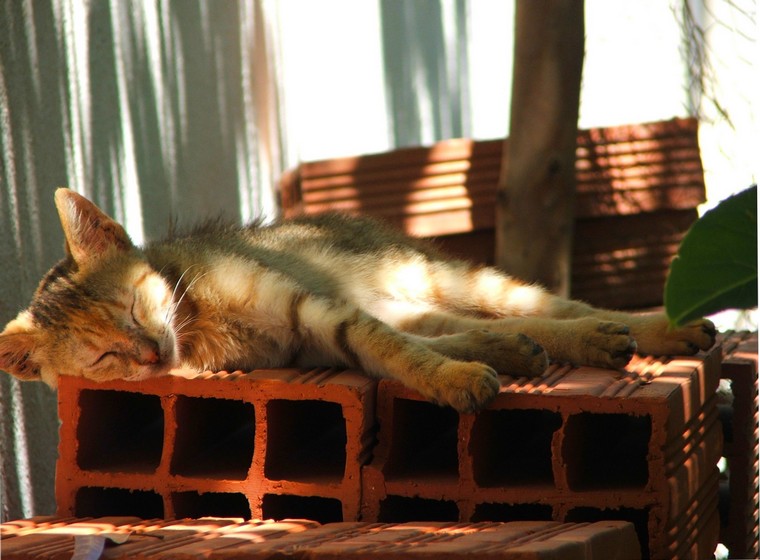
The Nap That Sells and Buys Souls
I once knew a merchant who started his trade by peddling from village to village. At midday, he would stop at a quiet place, untie and tether his donkey, unload his goods, and take his midday nap without fail. There was also a late elder uncle of ours. Even when his son passed away in a car accident, and the deceased lay in the lower part of the house, he did not forgo his midday nap. Our late grandmother used to say, "This nap feels as if it is buying my soul," and would advise, "Even if you owe a thousand liras, lie down for a while after lunch."
A fire once broke out in a lodge in Eyüp. The women there said, "Let’s not wake up Sheikh Efendi from his midday nap; we’ll tell him later." Meanwhile, half of the lodge burned down. When the Sheikh narrowly escaped the fire, he jokingly remarked, "If the best of women are like this, how can we trust them?"
It would be remiss not to mention Turkish billionaire and businessman Vehbi Koç, who never abandoned his midday nap under any circumstances and recommended it to everyone. On an overseas trip, he went to the airport infirmary under the pretense of feeling unwell, just to get some sleep. When he came out, he said, "I got some rest and had my blood pressure checked for free." He also advised that a proper midday nap should be taken in bed and in nightclothes. In the past, some shops even had benches for this purpose. When we were at university, each professor's office had a luxurious divan. After lunch, they would take a short nap and then ask the attendant to bring them coffee. If we had something difficult to discuss with a professor, we would wait until after this nap.
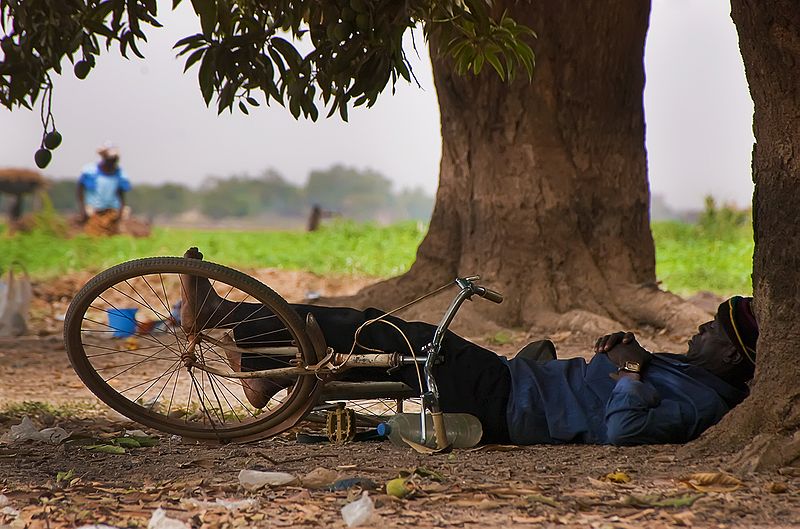
A midday nap under mango trees in Africa
The 3F + 1S Formula
Spaniards are at the forefront when it comes to the midday nap. It is said that dictator Francisco Franco ruled Spain for 40 years using the 3F + 1S formula: Fútbol, Flamenco, Fiesta, and Siesta. (Flamenco is a dance unique to Spain, fiesta means festival, and siesta refers to the midday nap. In Portugal, the flamenco in the formula is replaced by fado.)
The word siesta comes from the Latin hora sexta (sixth hour), referring to the halfway point of a 12-hour day. In Spain, life comes to a halt from 1 p.m. to 5 p.m., shops close, and dinner is eaten late. Those who can afford it enjoy entertainment until dawn. The siesta tradition was passed down to the Spaniards from the Arabs. In Arab countries, streets are deserted at noon, except for taxi drivers napping in the shade of their cars. This practice is common across Mediterranean and Latin countries, especially in hot agricultural regions, where a heavy lunch makes a midday nap a necessity. In the 10th century, Holy Roman Emperor Charlemagne would remove his shoes and outer garments after lunch on summer days and sleep for several hours.
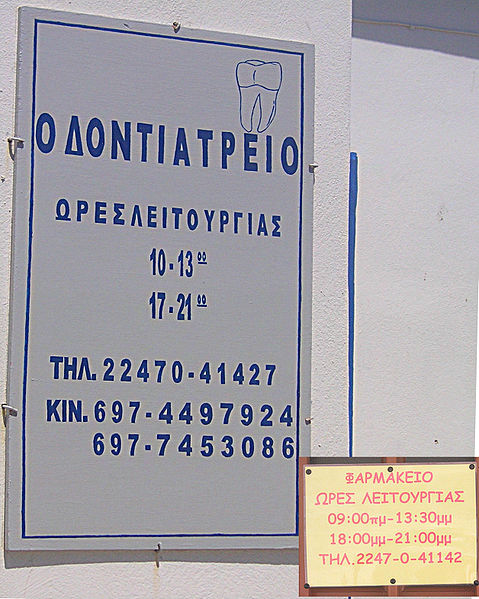
Office hours of a clinic in Greece
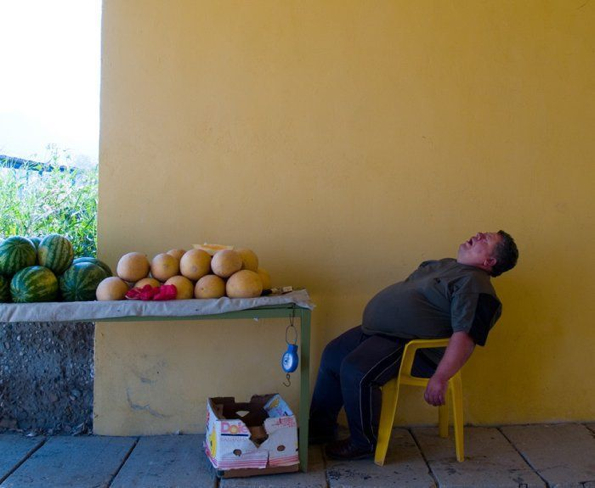
Siesta time in Latin America
In the Balkans, between 2 p.m. and 5 p.m., no one visits one another. From 1 p.m. to 2 p.m., people eat, and then everyone sleeps. In southern Germany, during the Mittagspause or Mittagsruhe (midday rest), shops close, and children play quietly at home. Asians also highly value this nap. In India, it is called sustana (a small nap), in China, wujiao (nap), and schools have a half-hour break for this purpose. In Japan, employers are required to allocate spaces for napping. In the U.S., the U.K., and France, governments encourage napping. At Indiana University, a nap club has been established with the support of professors. Old etiquette books emphasize the importance of not visiting or calling anyone in the afternoon. To those who say, "How can we sleep at this time?" we respond with an old Turkish proverb: "A hungry man seeks no seasoning; a sleepy man needs no pillow."
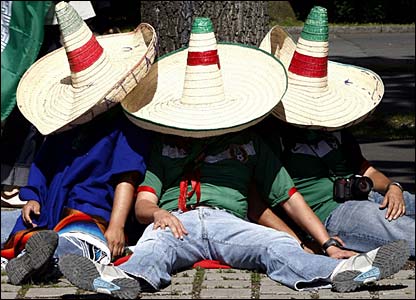
Önceki Yazılar
-
WOMAN IN THE EASTERN WORLD11.02.2026
-
THE OTTOMAN DYNASTY OWES ITS LIFE TO A WOMAN4.02.2026
-
THE WATER OF IMMORTALITY IN THE “LAND OF DARKNESS”28.01.2026
-
THE WORLD LEARNED WHAT FORBEARANCE IS FROM SULTAN MEHMED II21.01.2026
-
THE RUSH FOR GOLD14.01.2026
-
TRACES OF ISLAM IN CONSTANTINOPOLIS7.01.2026
-
WHO CAN FORGIVE THE KILLER?31.12.2025
-
WHEN WAS PROPHET ISA (JESUS) BORN?24.12.2025
-
IF SULTAN MEHMED II HE HAD CONQUERED ROME…17.12.2025
-
VIENNA NEVER FORGOT THE TURKS10.12.2025